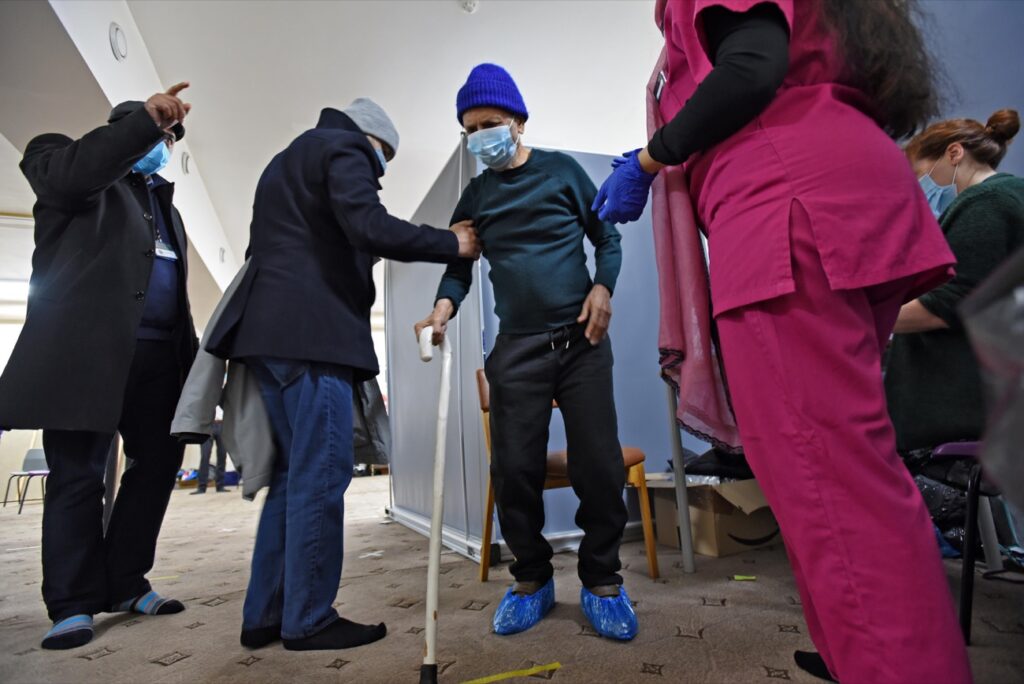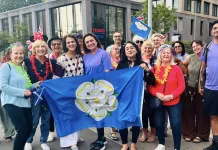The country’s top doctor has urged everyone who is entitled to a Covid jab to come forward as new figures showed the NHS vaccination programme racked up record numbers of jabs last week.
NHS national medical director Professor Stephen Powis called on anyone who qualifies for a jab but has not yet received one to book an appointment in the next few days before slots dry up.
The call came after hard working NHS staff delivered more than 3.5 million doses in the seven days to Sunday, 1.5 million up on the previous week which had also been a record.
Four in five people in the first nine priority groups have now received at least one dose since the NHS vaccination programme, the biggest in health service history, kicked off a little over 100 days ago.
NHS medical director Professor Stephen Powis said: “It is a testament to the careful planning and sheer hard work of staff that the NHS vaccination programme is continuing to protect people against coronavirus at a record pace.
“I was thrilled to get my first dose earlier this month, it was quick, painless and safe and it feels great knowing I’ve got protection against covid-19 so if you are eligible do not delay, book a jab.”
Far fewer appointments will be available for first doses from next week as the bulk of available supplies are used to full vaccinate people with a second jab.
The proportion of people aged 50-54 having their first jab has shot up over the past week from 42% to seven in 10 with the NHS now putting a laser focus on inviting everybody in the most at-risk cohorts protected ahead of 15th April and more constrained supply of available doses next month.
People with a learning disability or living with an underlying health condition like serious asthma, who are yet to get their jab are being urged to book before March 29th, with some GPs calling each of their unvaccinated patients personally to encourage uptake.

Doctors, nurses and thousands of other staff, supported by volunteers and others, are delivering the life-saving jab at more than 1,600 sites ranging from cathedrals, mosques and temples to racecourses, sports stadiums, cinemas and museums.
The NHS is inviting those eligible for a jab by letter and text with GPs also calling some patients.
Text invitations appear as an alert from ‘NHSvaccine’ and letters include a web link to click and reserve an appointment at one of more than 300 large-scale vaccination centres or pharmacies across England.
Anybody aged 50 or over can book themselves in for a first dose before March 29th online using the national booking system.
People aged 18 and over, who are clinically vulnerable, should also book themselves in for a jab this month.
GPs will continue contacting eligible patients and vaccinating them throughout April with a first dose.
Last week, 24 hours after the chief executive of the NHS, Sir Simon Stevens, received his first dose, the Prime Minister also got his jab, both receiving the Oxford Astra Zeneca vaccine.
More than 24 million people have been vaccinated since the launch of the largest vaccination programme in the history of the NHS last December.
The NHS made history when 90-year-old Maggie Keenan was the first recipient in the world outside a clinical trial of a Pfizer vaccine at Coventry Hospital on December 8.
Brian Pinker, 82, was the first person to be vaccinated with the new Oxford/AstraZeneca coronavirus vaccine on January 4 by the NHS in Oxford, where the jab was created.















